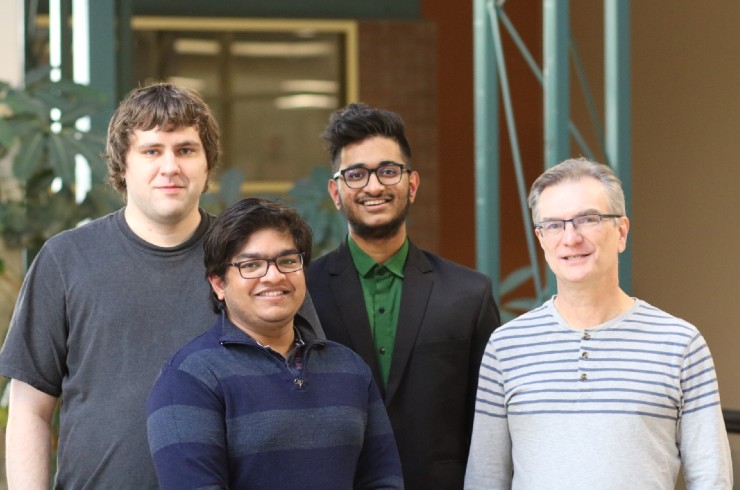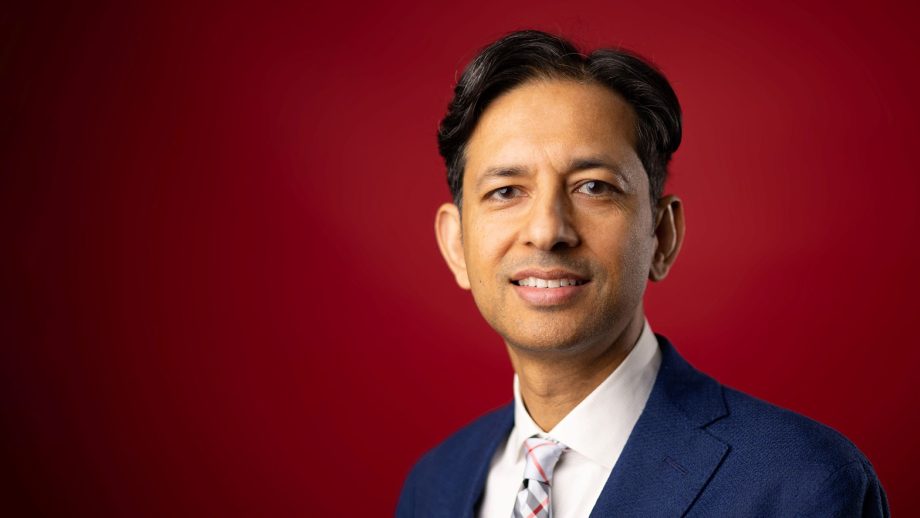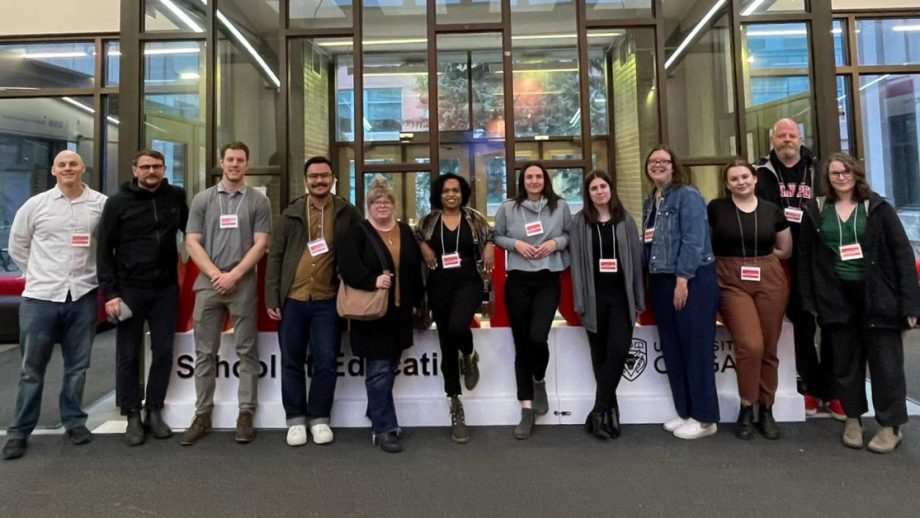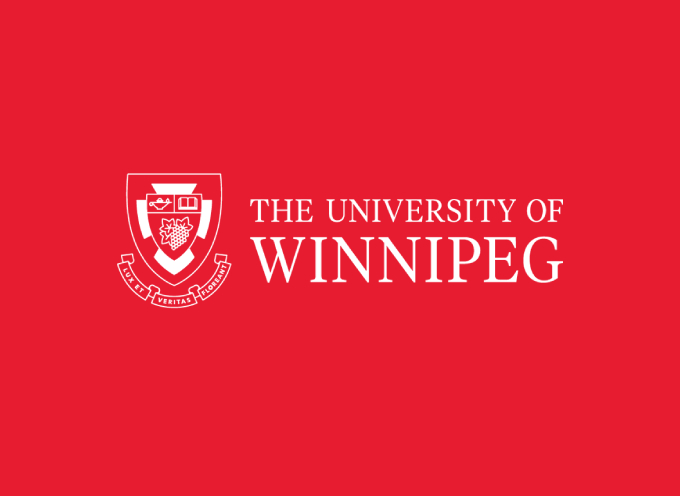The University of Winnipeg had three mathematicians participate in the North Central Section of the Mathematical Association of America’s Team Math Competition. Led by Dr. Terry Visentin, undergraduates Aalekh Patel, Harsh Patel, and Alex Stephens flexed their math muscle and placed sixth out of 56 teams from 21 schools across Manitoba, northwestern Ontario, Minnesota, North Dakota, and South Dakota.
“This highly competitive contest requires students to creatively solve difficult math problems as a team,” said Dr. Anna Stokke, Chair, Department of Mathematics and Statistics. “Placing among the top teams in north-central North America is a huge accomplishment for our students and their coach, Dr. Visentin. We are thrilled to be attracting and training world-class math students at UWinnipeg.”
Visentin has been training teams for the contests for more than 22 years. He believes the contest training aids students to excel in their math skills and also use the math they’ve learned at UWinnipeg in creative ways.
Aalekh, Harsh, and Stephens had three hours to work together and solve 10 problems, which range from moderately difficult to very hard.
“It’s quite a rewarding exercise for anyone who wishes to sharpen their reasoning skills,” said Aalekh, who participated in the contest as an opportunity to explore uncharted ways to break problems presented in a timed setting.
“The great results of the team contest makes me feel proud of our students,” said Visentin. “They work very hard in their courses and still find time to work on the problems I give them ‘for fun.'”
Visentin’s first introduction to the contest was when he was an undergraduate.
“I competed in math contests when I was a student and found it very rewarding,” he said. “I’ve always enjoyed this sort of problem solving and want to help students enjoy it as well.”
As someone who loves the fun a good math question provides, Harsh describes the element of excitement in conquering the problems.
“You have to be on top of your game to be able to do well, and put yourself to the test, especially when you get to work with such a great team,” he said. “And of course, Dr. Visentin make all the effort to train us. From seeking the right approach to understanding the problem to formulating and writing the solutions, everyone brings out their best insights and unique perspectives to break down the problem.”
Visentin is fascinated to see how students work together to solve problems.
“Throughout most of a math student’s training, they work alone learning material, solving problems, writing proofs,” said Visentin. “Yet, most research mathematics is done in collaboration with others, so it’s good for students to experience this during their undergraduate studies.”
Stephens points out that each problem requires at least one clever insight in order to be solved. It can’t rely only on memorized mathematical facts and procedures, contestants must also have to consciously understand and analyze each problem in detail to create a solution.
“Working with a team is helpful because with effective communication, and cooperation, each member’s strengths can compensate for others’ weaknesses,” said Stephens. “Since I hope to do mathematics research in the future, these are skills I must cultivate.”
The North Central Section of the Mathematical Association of America Team Math Competition debuted in 1997 and UWinnipeg teams began competing in 1998. The American Mathematics Competitions are a series of examinations and curriculum materials that build problem-solving skills and mathematical knowledge.





